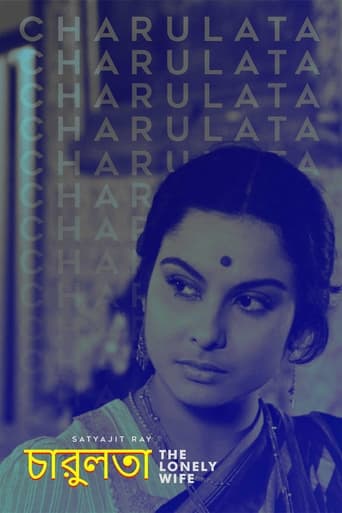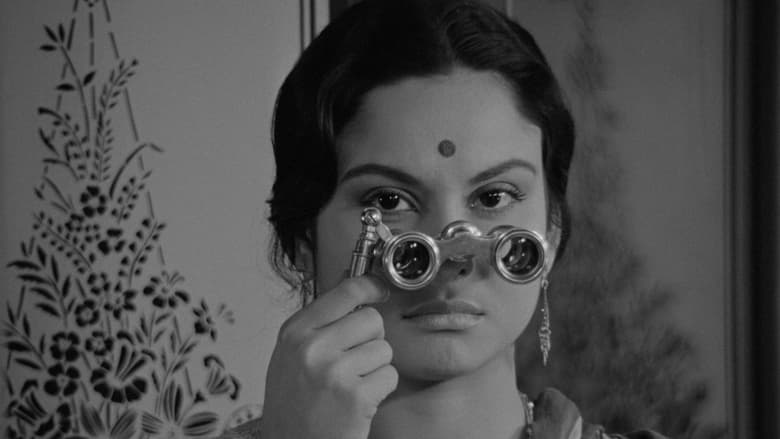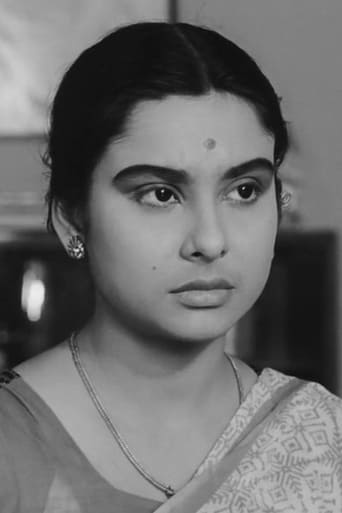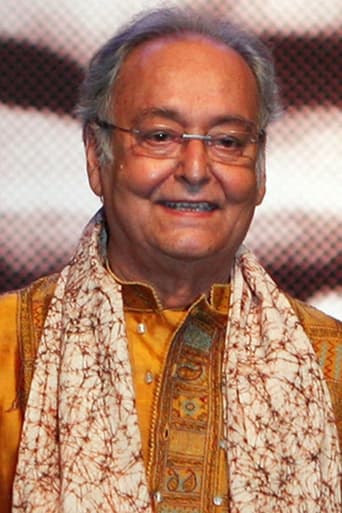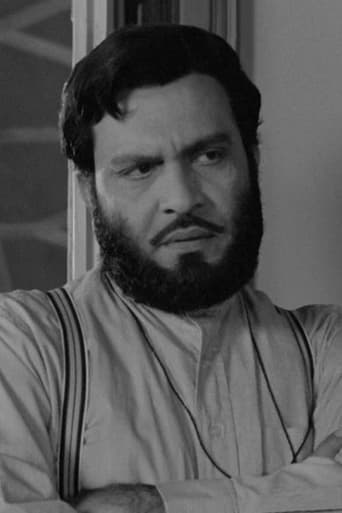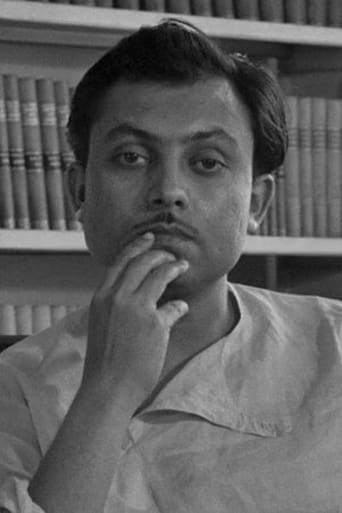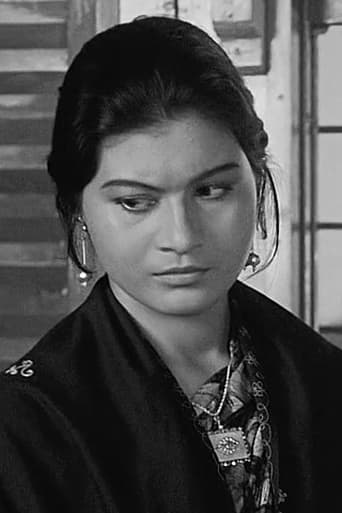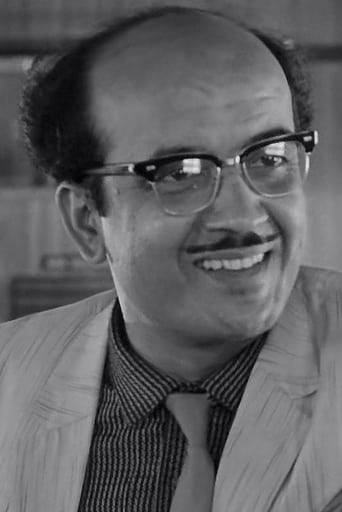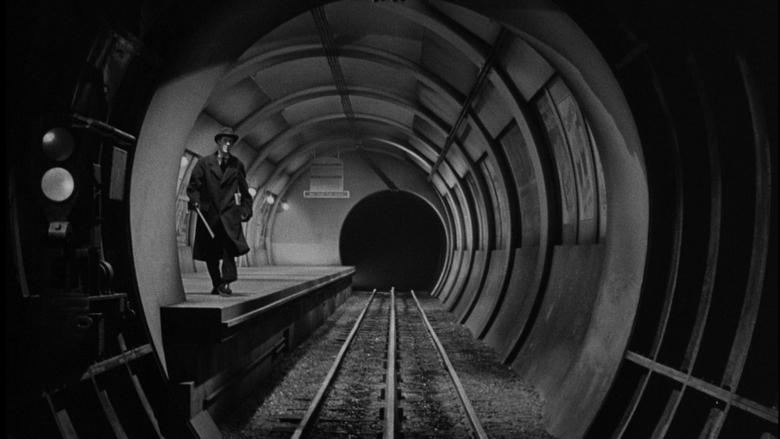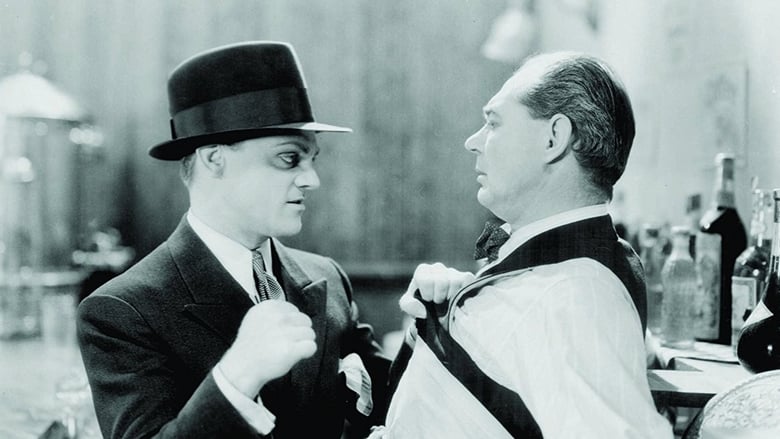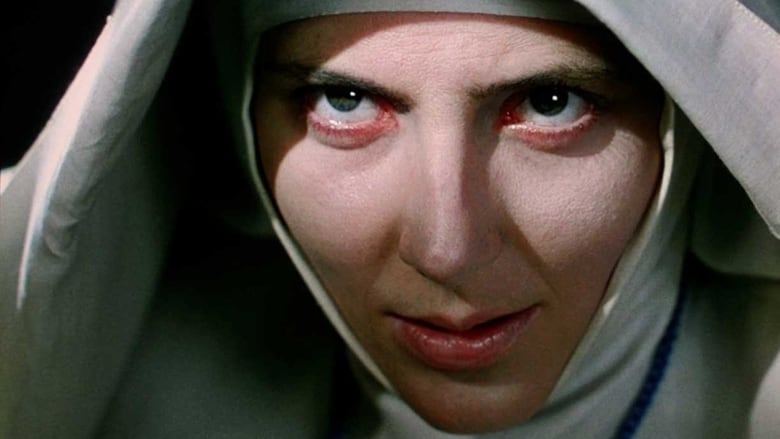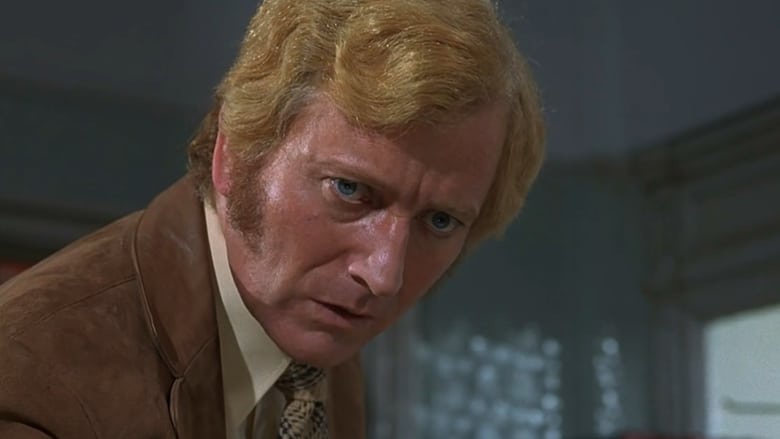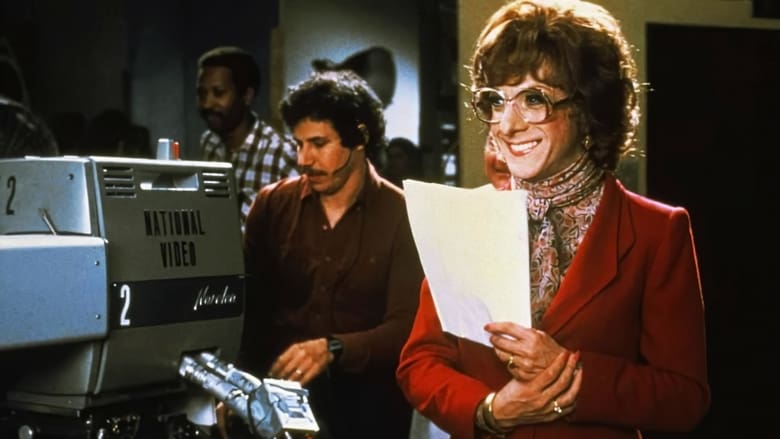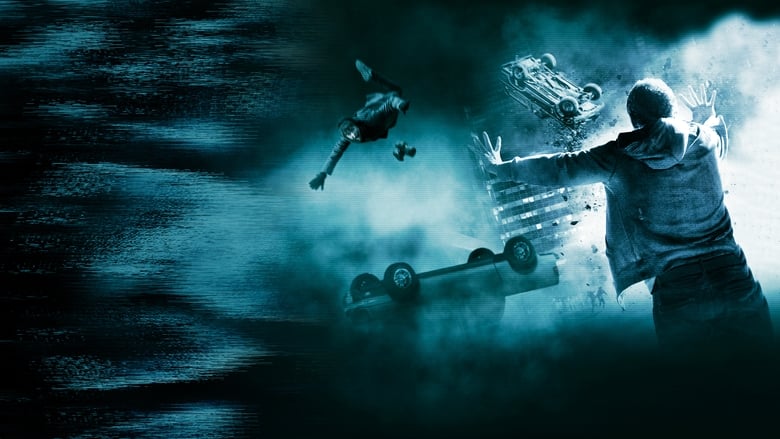In 1870s India, Charulata is an isolated, artistically inclined woman who sees little of her busy journalist husband, Bhupati. Realizing that his wife is alienated and unhappy, he convinces his cousin, Amal, to spend time with Charulata and nourish her creative impulses. Amal is a fledgling poet himself, and he and Charulata bond over their shared love of art. But over time a sexual attraction develops, with heartbreaking results. Preserved by the Academy Film Archive in partnership with The Film Foundation and Merchant and Ivory Foundation in 1996.


Similar titles
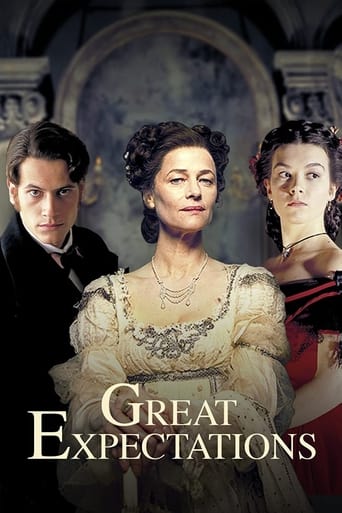
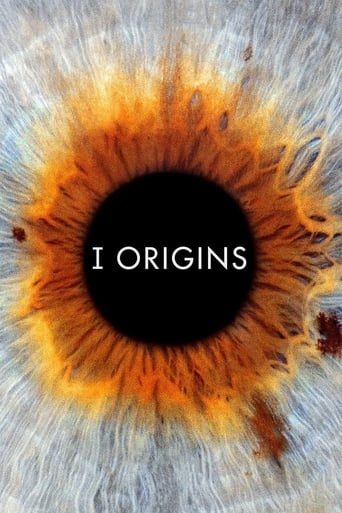
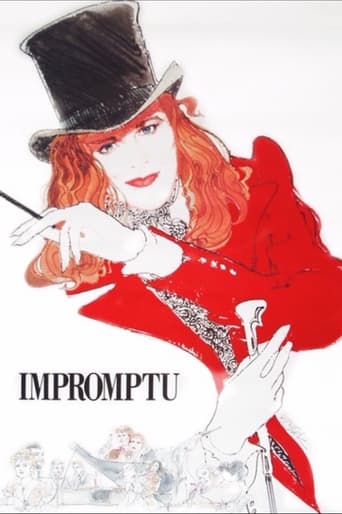
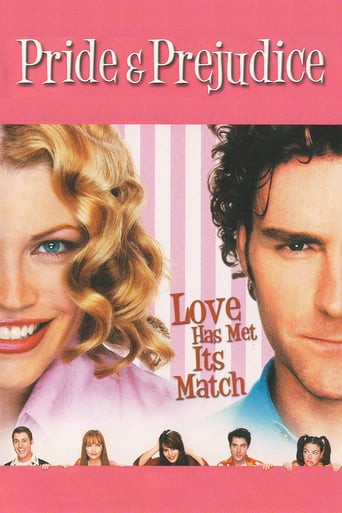
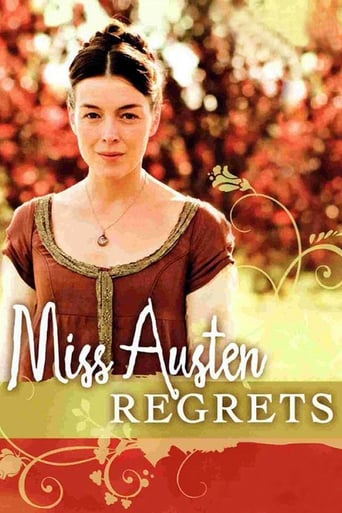
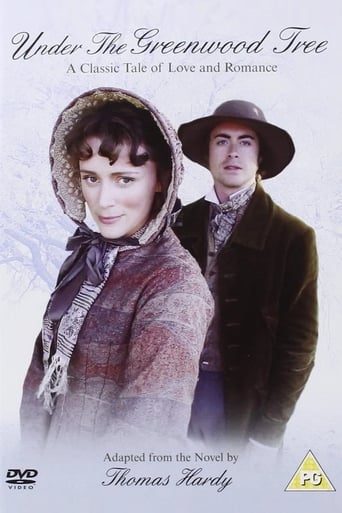

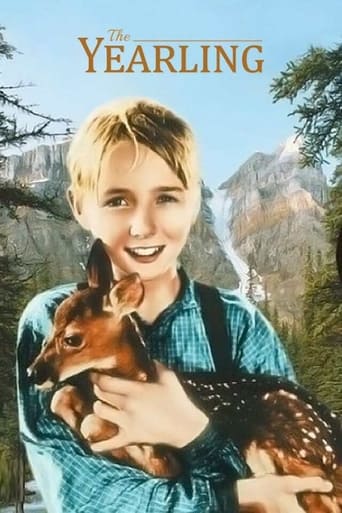
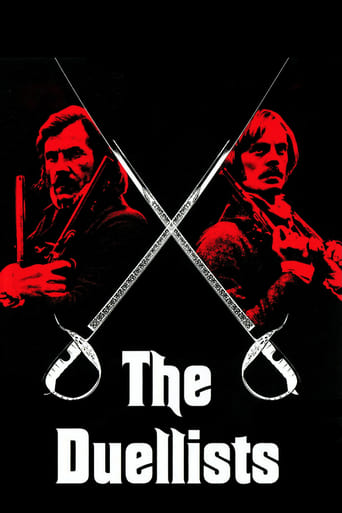
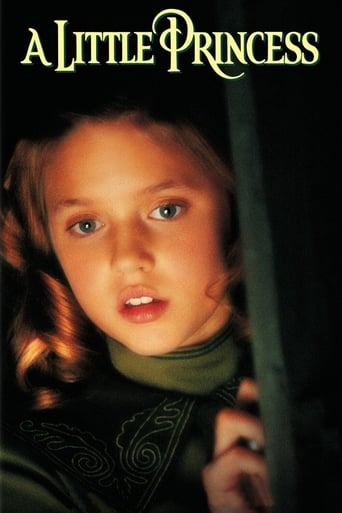
Reviews
Charulata begins with a long shot of Madhabi Mukherjee searching for a book of Bakimchandra Chattopaday. In this one shot not only Ray conveys the premise but also the the themes of loneliness and desperation.Growing up in a Bengali household ,I have always heard about Charulata being a instant classic.I have watched other Ray classic but the treatment of the material is so unique, yet so familiar that this may truly be a complete movie.The first half as a kind of effervescence that you least expect with a movie of this kind.Ray has superlative control over his music and background score .He very cleverly uses Rabinrasangeet with Western influences , instantly lifting this to the levels of International cinema.The sequence with "Ami Chinigo Chini tomare" is a superlative montage that is so rarely seen in Indian moviesThe second half is very different from the first half but the transition does not feel drastic. Amal matures and Charu is left heartbroken ,but the most superlative scene is when Bhupati understands the truth of their relationship.It is superlative scene played with nuance.The final scene is a utter celebration of cinematic celebration and is a rarity in Indian cinema.Charulata is the cameras ultimate triumph .Shots and sequences are itself a part of storytelling and have enhanced the conflicts manifold times.Hence this movie may or may not be Ray's best but it is surely the greatest celebration of Bengali culture
Recently, I received some very nice emails from someone who appreciated my reviews (there's at least one!) and they recommended I look into the films of Satyajit Ray--particularly "The Big City" and "The Lonely Wife". I am happy I listened, as I really liked both films--particularly "The Big City". The best thing about these films is their ordinariness--how they are about everyday folks and the films are not glamorized or Hollywoodized in the least. The unfortunate thing, however, is that both are pretty lousy prints with relatively poor captions--and both appear to be directly copied from a videotape.Now what I saw in the film and what the summary says are not exactly the same. Perhaps this is due to a mistranslation, or perhaps when the husband says 'brother' it's a diminutive term and the person he's saying it to is actually his cousin, but I sure was under the impression that Amal was Bhapati's brother.Charlu is a lonely lady back in India in 1879. Her husband is the publisher of a newspaper--so she lives in relative luxury but doesn't see enough of him, as he's very busy. So, Bhapati gets the idea to have his family come and live with them. The brother-in-law seems like a good choice to move in with them, as he says he wants to work on the paper and contribute. Amal, however, is a recent college graduate and is not at all interested in doing any work--just write. Quickly Amal and Charlu become friends, as both of them have a common interest--writing. However, this familiarity combined with Bhapati's absence spell disaster--as does trusting the brother-in-law with the paper's finances. There's more to the story than this, but it's best you see it yourself and see it unfold.The acting, writing and direction are very nice--mostly because it seems awfully real. And, if you like Neo-realist films or stories by Majid Majidi, then you should really like "The Lonely Wife". Not great but very, very good.
This is one of the most beautiful and memorable films I've ever seen. Like all Ray's films, it moves slowly and gently. No one says what they think or want; it's all implied in the action. The cinematography is superb. There's a memorable scene where Charulata is swinging gracefully under a huge shady tree, singing a Bengali version of Ye Banks and Braes of Bonnie Doon - so incongruous in Calcutta, but beautifully capturing the way the family was at the cutting edge of the cultural collision between traditional Bengali values and the new world of their British rulers - while Amal, the younger brother-in-law who pays her the attention her husband doesn't, is lounging on the grass reading, dappled in sunlight. Love is everywhere, yet not a word is said. The story is based on Rabindranath Tagore's novella Nashta Nir (The Bird's Nest), which in turn is based on real life, a tragic event in Rabindranath's life. His elder brother Jyotindranath, a playwright, painter and failed businessman, found too little time for his wife Kadambari, who was Rabindranath's age, childless, and infatuated with literature - a very unusual combination for a Bengali woman in that age. (The Tagore women were pioneers: they showed themselves in public, loved the arts, one was the first woman to ride a horse on Calcutta's Maidan, its inner city park, another the first Bengali Hindu to wear a blouse under her sari). The young Rabindranath was Kadambari's companion, and she his Muse, to whom he dedicated his early books. How far it went is not clear, but eventually his father married Rabindranath off to a child bride, and a few months later Kadambari committed suicide.
**POSSIBLE SPOILERS**Lacking the formidable cultural legacy of his earlier Apu trilogy, CHARULATA (Ray's 11th film) lacks nothing else if Ray's overall style was derived from neo-realism; CHARULATA proved that in his own uncluttered way he was also a master of style and subtle elegance.CHARULATA was perhaps Ray's most technically stunning work, featuring an elegant - if moody - story shot in a manner that finds Ray experimenting a bit. The story is set in an upper-class, intellectual household in 1890s India, and the period setting is rendered in great detail giving the film a lush, living beauty that (thanks to the stunning cinematography of Subrata Mitra) never crosses over into stuffiness. In a handful of scenes, a French new wave influence can also be seen primarily at the very end, and also in an earlier scene featuring the title character's recollections (in a quick-moving montage) of childhood memories. Based on a story by Rabindranath Tagore, the film explores marital complacency, as Bhupati (a wealthy publisher and political idealist, devotes the majority of his time to his publishing business, and to political interests, and grows increasingly isolated from his wife, Charulata. Charulata as an attractive upper-class wife, is essentially expected to manage the household, and not much else, and is increasingly both lonesome (Bhupati is a generally pleasant enough husband, though also a severe workaholic who is rarely around, and - in his sexual politics - he is a product of his time) and intellectually restless. In the midst of this, Bhupati's younger brother Amal arrives Amal, a romantically inclined bohemian and recent college graduate who is searching for work while also pursuing literary ambitions, and has temporarily moved into the household. Amal and Charulata are instantly drawn to each other first as intellectual companions, before an awareness of attraction is recognized. The two are plainly aware of the impossibility of the unrequited relationship, as Bhupati after discovering than an employee has been embezzling form him is then devastated to discover that his wife is turning away from him. To highlight the increasing distance between each of the three characters, CHARULATA is formalistic in it's look (with the handful of well-placed new-wave-inflected scenes adding textural complexity and emotionalism), with the classical touches of the cinematography underscoring the characters' ever-increasing distance from each other. Exploring sexual and class politics - with great depth and complexity - in a historical setting (while in its' exploration of idealistic, nationalistic politics making subtle connections to the present-day handling of the same issues in Bengali society), with flawless performances from all, CHARULATA is a beautiful and haunting masterpiece.
